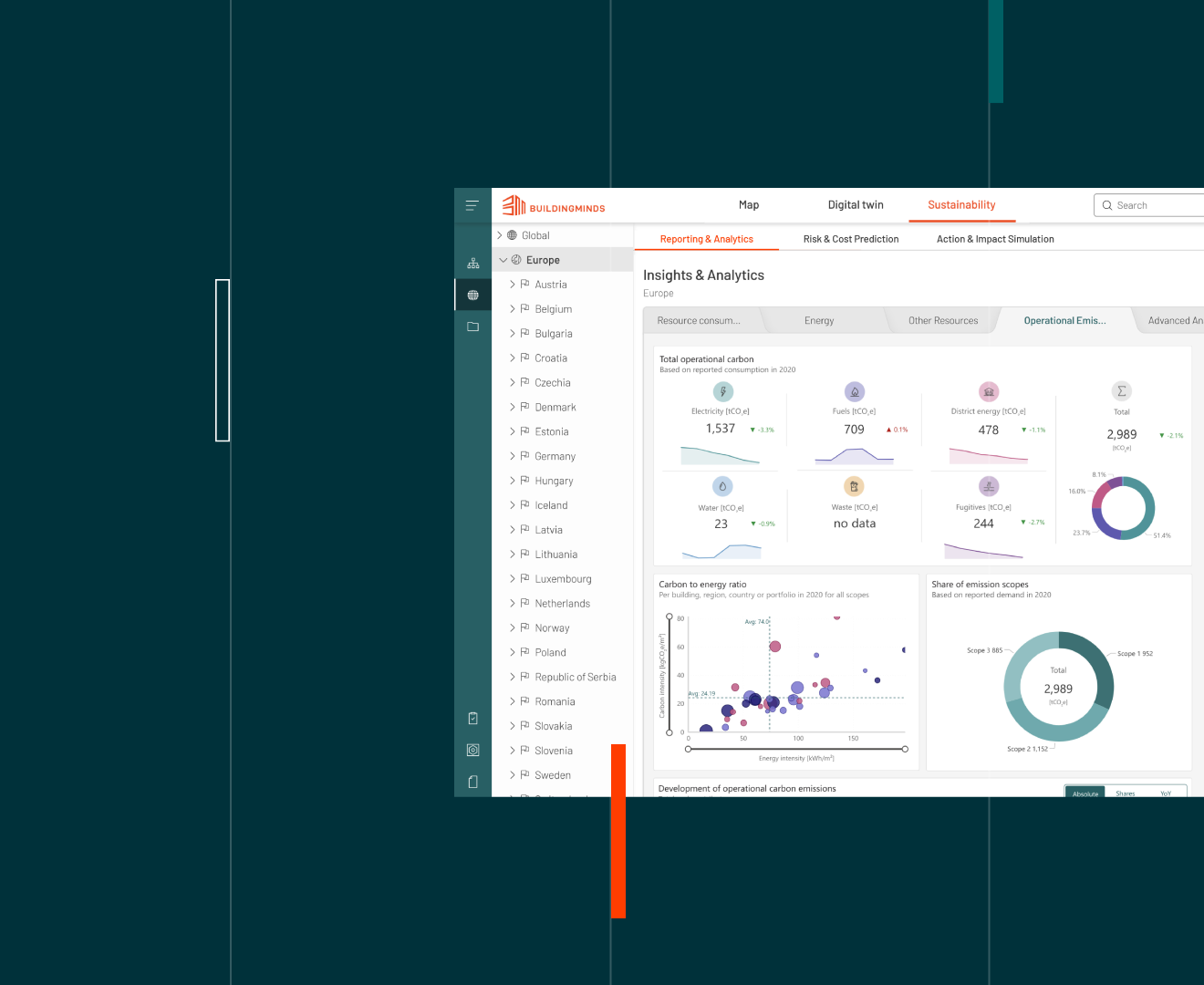Corona’s effects on the real estate industry

The impact of a black swan event like COVID-19, an unexpected macro event that changes the course of history, can scarcely be overestimated. According to the Property Chronicle, the most evident effect for the industry is the abrupt halt of real estate transactions as investors move into a wait-and-see mode, with delayed investment decisions and pending financing possibilities.

Crisis has always been a driver of change, but in our industry and in this crisis, it has the potential to be an incredibly strong driver for digitalization. There are three interesting perspectives to examine this trend from:
Building health performance is a new KPI
The COVID-19 outbreak has made the role of a building’s health performance fundamental and essential. In the case of public health emergencies two elements are key according to the WorldGBC: prevention and control.
The ability to contain the epidemic is of utmost importance, particularly in times of enforced social isolation, with residential buildings becoming the primary location for both habitation and work, when possible. Community and building-based prevention and control strategies require measures such as self-isolation, community management, natural ventilation, elevator disinfection, environmental cleaning and more.
Current green building criteria, e.g. the newest national standard for China in the Assessment Standard for Green Building (ASBG) from the WorldGBC as of March 2019, takes into account new applications and concepts in building technology with the stated goal of ensuring safety, durability, health, livability and accessibility for occupants of all ages. ASGB requirements, when combined with digital benchmarking, ensure that occupants receive natural ventilation, indoor disinfection and gathering avoidance.
Monitoring quality levels and information distribution are two areas that can only be achieved by comprehensive data gathering and the proper application of digital solutions.
In times of pandemic isolation, buildings become areas of both living and working with residents spending the vast majority of their time indoors. It becomes therefore even more essential that buildings can guarantee a stable and healthy environment.
The fundamental changes to workspace
A recent MIT study showed that in the United States only about 5% of employees worked from home prior to the pandemic. Now that number is near 30% and likely to rise. Similar numbers have been logged for employees in Europe and Asia.

That share is unlikely to change in the post-corona world when employers realize the advantages of digital working. Experts say this locked-in “work from home force” will drive digitalization trends like never before as the workspace moves into the virtual space. If anything, the approximate third of the workforce currently working-from-home will likely move toward 40% and beyond in the years after 2020.With flexible, remote working expanding to an important share of the workforce, agile office space management based on comprehensive data capturing and analytics becomes a new opportunity to maintain and enhance profitability.
Virtual reality instead of open houses
Potential buyers, who can otherwise not visit a property, are using applications of virtual reality and so-called virtual tours to ‘visit’ properties. Eddie Shapiro of Nest Seekers International, one of the world’s fastest growing real estate firms, says his company offers virtual tours and virtual reality options for its properties as well as Google meetings, YouTube Live and Facebook Live to orchestrate virtual open houses.Virtual open houses have allowed buyers to continue viewing and touring properties as they otherwise would in-person.
Nest Seekers International says that approximately 60% of its listings have a video component and that they intend to have that number at 100% as soon as possible.
Property buyers in China, facing the brunt of COVID-19, have flocked to virtual property tours. In February 2020, according to news site SupChina, 350,000 virtual tours per day were hosted by Chinese real estate agents, 35 times the number of tours hosted just the month before. Chinese buyers have also become a force in international property.



